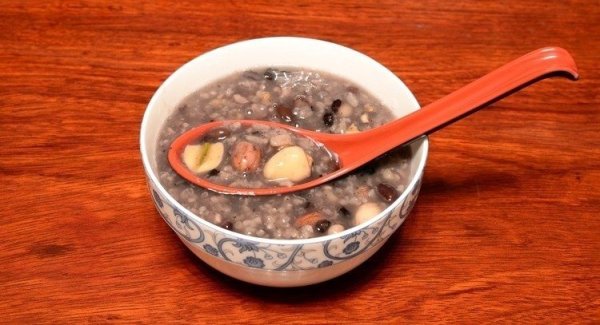Does brisk walking consume more heat than jogging? The professor revealed the correct answer and the reasons

For more than 20 years, I have been conducting 3 days of frequent training every week, swimming 2 days and running 2 days. Although I have grown and weighed harder and I have been swimming and running slower, I still insist on swimming for 40 to 50 minutes and running for 30 minutes each time. When it comes to running, I'm 0.1 miles every three minutes (so my heart can be more suitable), and six years ago, my starting speed could be 6 miles, but now it's down to 4.4 miles.
4.4 miles of speed can be running (jogging) or walking (quick walk), so when I went to the ceremony, I tried to jog at 4.4 miles of speed for three minutes, and then walked for one minute, with the wheels alternated. What surprised me was that despite the same speed, walking quickly was much easier than jogging. So, after I got home, I searched online for questions about whether anyone had ever discussed the question of how easy it was to walk fast than jogging.
What surprised me was that many websites in Taiwan say that brisk walking consumed more heat than jogging, such as brisk walking or jogging published by Yuanqi Network on September 23, 2014. Which one is better for me? , and the 2020-6-2 report of Good Morning Health has more fat burning than jogging, and it also reduces kidney cancer by 31%! 13 good places must go. The article on
Yuanqi.com said: "Lin Qinfu, a professor in the Department of Physical Education at National Hsinchu Education University, said that the maximum speed of brisk walking and jogging is 8 kilometers, but ordinary people usually walk about 6 kilometers at a fast speed, that is, the walking speed is faster than the upper air. At that time, the speed is the same, In fact, the load of jogging is lower, that is, with the same physical strength, the jogging time can be relatively longer, but the heat consumption of brisk walking is higher. "
The "When the speed is the same, the load of jogging is lower" is obviously the exact opposite of our personal experience. So, even though this statement comes from a professor in the Department of Physics, does it have any scientific basis? Unfortunately, all the articles I have read that say "Quick walk consumes more heat than jogging" do not provide scientific evidence. So, I'll ask you to see the scientific certificate now.
2004: Energy expenditure of walking and running: comparison with prediction equations. This study found that the heat required to complete 1.6 kilometers is: 115 calories for jogging (10 kilometers per hour) and 80 calories for brisk walking (5 kilometers per hour).
2012: Energy expenditure comparison between walking and running in average fitness individuals. This study found that the heat required to complete 1.6 kilometers is: 113 calories for jogging (9.6 kilometers per hour), while brisk walking (5.2 kilometers per hour) is 89 calories.
2013: Greater weight loss from running than walking during a 6.2-yr prospective follow-up (On 6.2 years of forward-looking visits, running is lighter than walking). This study found that to consume the same amount of heat, walking requires 50% more distance and 100% more time than running. (Note: This article was quoted in New York Times. Please read the Chinese version of walking or running?)
The above three articles use different speeds when comparing the energy spent on walking and running (walking slower and running faster). The following article uses the same speed.
2018: The Energy Consumption Differences between Walking and Running at the Same Speed. This study found that at the same speed of 6.4 kilometers, the heart rate of brisk walking is 106, while the jogging is 125. At the same time, the energy consumed by jogging is 1.3 times that of brisk walking.
Taiwan issued a strongest super jogging method in 2018, and its original author was Hiroaki Tanaka, a professor at the School of Physical Education at Fukuoka University in Japan. He said, "jogging consumes twice the heat of walking."
According to Japanese economic news, this professor passed away on April 23, 2018 at the age of 70. However, until 2021, his name Hiroaki Tanaka still appears in the list of authors of academic essays. I found a Slow jogging – a multi-dimensional approach to physical activity in the health convention, which he is the first author, published in 2019. He said: "The energy consumption of walking is about 0.5 kcal/kg/km, and running will increase this value by nearly twice regardless of speed.".
The article he quoted was the Energy cost of running (the energy cost of running) published in 1963, and the abstract of this article is as follows: [The energy cost per kilometer (1 kcal/kg) is about twice the walking at the most economical speed (4 km/hr).]. Therefore, what Professor Hiroshi Tanaka said, "No matter what speed, the energy spent on running will be nearly twice as high as walking." may be a bit over-interpreted.
Based on our personal experience and the four above articles (2002, 2012, 2013, 2018), the same distance (1 to 5 kilometers) is achieved with the same speed (5 to 7 kilometers) and the energy consumed by jogging is about 1.3 times that of brisk walking. As for why, it is most likely that running has the moment when two feet leave the ground at the same time, and walking always has a foot to step on the ground. Therefore, no matter which speed is at the same time, running must spend more energy against gravity than walking. If a 70kg person runs for 30 minutes, he must spend more than 5,000 more energy to swing a 70kg Homo erectus off the ground (about 70 kcal).
Whatever the real reason is, it is certain that the online articles say that "quick walking consumes more heat than jogging" or "more fat burning when walking is more than jogging" are all wrong.
Original text: brisk walking consumes more heat than jogging, as the professor of education said



